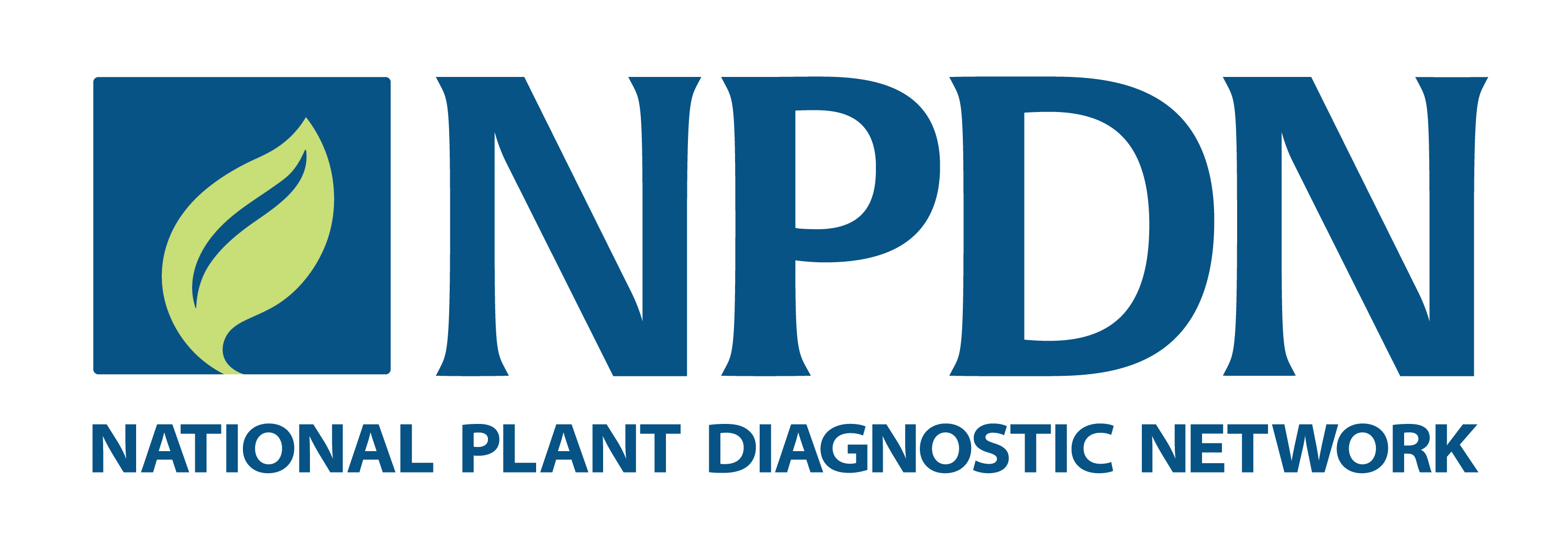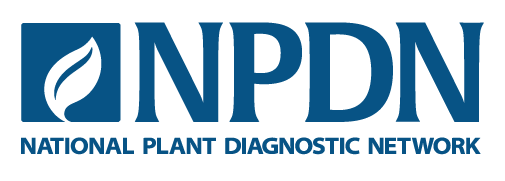The National Plant Diagnostic Network (NPDN) serves regulatory partners, including APHIS and the state departments of agriculture, with a distributed ability to process large numbers of samples during agricultural emergencies.
Most NPDN labs can process samples via ELISA, enabling nearly every state to filter out negatives using ELISA tests for organisms such as Phytophthora, Clavibacter, or virus groups that include potentially regulated species. Additionally, some NPDN labs are certified by the National Plant Protection Laboratory Accreditation Program (NPPLAP) for testing of Phytophthora ramorum, the cause of sudden oak death (SOD), citrus greening Huanglongbing disease (HLB) and Plum Pox Virus (PPV), narrowing down the number of suspect-positive samples funneled to APHIS’ confirmatory lab. This system of genus- and species- level graduated testing protects the APHIS PPCDL from overwhelming sample surge, and supports state regulatory authorities’ ability to quickly release healthy plants for commerce.
Since the development of the APHIS NPPLAP program, NPDN labs have processed tens of thousands of samples with this filter-and-funnel system as a critical part of the national tactical sciences for plant protection in the US. For example, NPDN labs tested over 6,000 woody plants for Phytophthora in the year from November 2021 to November 2022. Of those, 1920 were tested specifically for P. ramorum.
Because NPDN exists as a distributed and nationwide set of labs, we can handle thousands of samples in a short time, keeping the flood of samples from overwhelming the relatively small number of regulatory labs and responding to industry and partners in a short time period. This supports trade, plant health, and regulatory response when needed.

